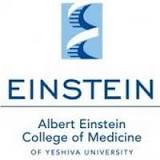Project TEACH-Kenya
| Status: | Completed |
|---|---|
| Conditions: | HIV / AIDS |
| Therapuetic Areas: | Immunology / Infectious Diseases |
| Healthy: | No |
| Age Range: | 13 - 18 |
| Updated: | 4/13/2015 |
| Start Date: | September 2013 |
| End Date: | September 2015 |
| Contact: | Esther Mwangi |
| Email: | essymimo@yahoo.co.uk |
| Phone: | 718-862-1720 |
Project Tailoring Effective And Community-based HIV Interventions in Kenya
Public health programs and policies have utilized the "combination prevention" model of
bringing together tailored, proven interventions in order to reduce the global impact of
HIV. Project TEACH-Kenya adapts two effective HIV interventions, Project BRIEF (Behavioral
intervention, Rapid HIV test, Innovative video, Efficient cost and health care savings,
Facilitated seamless care) and STEP (Skill-based Teenage Education Program for HIV
prevention) to increase HIV testing and counseling rates, implement proven risk reduction
programs, and improve rates of linkage to care and ART initiation among adolescents in
Kenya. The collaboration with St. Francis Community Hospital and input from the Kasarani
community will increase the breadth, reach, and impact of this HIV prevention intervention
in Kenya.
bringing together tailored, proven interventions in order to reduce the global impact of
HIV. Project TEACH-Kenya adapts two effective HIV interventions, Project BRIEF (Behavioral
intervention, Rapid HIV test, Innovative video, Efficient cost and health care savings,
Facilitated seamless care) and STEP (Skill-based Teenage Education Program for HIV
prevention) to increase HIV testing and counseling rates, implement proven risk reduction
programs, and improve rates of linkage to care and ART initiation among adolescents in
Kenya. The collaboration with St. Francis Community Hospital and input from the Kasarani
community will increase the breadth, reach, and impact of this HIV prevention intervention
in Kenya.
In 2010, HIV/AIDS accounted for up to 29% of all deaths and 24% of all disabilities in
Kenya. There is a particular need to concentrate HIV education, testing, and linkage-to-care
efforts among high-risk adolescents; by age 18, 47% of women and 58% of men have had sexual
intercourse. Only one in four young Kenyans used condoms the first time they had sex, and
only half of 15-24 year olds had comprehensive HIV knowledge. The goal of this intervention,
Project TEACH-Kenya, is to adapt two proven HIV interventions, Project BRIEF and STEP, to an
urban setting in the Kasarani District of the Nairobi Province, Kenya. According to the US
President's Emergency Plan for AIDS Relief (PEPFAR) Five-Year Strategy, a successful
prevention program brings together a combination of evaluated, tailored interventions, to
stem the spread of HIV infection among high-risk populations. This synergistic model,
referred to as combination prevention, serves as the basis for adapting the current
intervention encompassing HIV testing and counseling, risk behavior reduction programs, and
linkage to care and ART initiation to the Kenyan context. Project TEACH-Kenya will develop
tailored, theory-based educational videos, linkage procedures, and a tailored prevention
program for adolescents 13-18 years old and pilot and test the intervention at St. Francis
Community Hospital, a high volume community-based hospital in Kasarani. The majority of
adolescents that access St. Francis's services are orphan and vulnerable children affected
by HIV/AIDS (OVC-HIV) who are disproportionately poor and malnourished and are at increased
risk for acquiring HIV, stressing the need for this intervention. The outcome of this
project will be a feasible, evidence-based, cost- and time-effective program to improve HIV
education and increase testing and linkage-to-care rates among adolescents in Kenya.
Kenya. There is a particular need to concentrate HIV education, testing, and linkage-to-care
efforts among high-risk adolescents; by age 18, 47% of women and 58% of men have had sexual
intercourse. Only one in four young Kenyans used condoms the first time they had sex, and
only half of 15-24 year olds had comprehensive HIV knowledge. The goal of this intervention,
Project TEACH-Kenya, is to adapt two proven HIV interventions, Project BRIEF and STEP, to an
urban setting in the Kasarani District of the Nairobi Province, Kenya. According to the US
President's Emergency Plan for AIDS Relief (PEPFAR) Five-Year Strategy, a successful
prevention program brings together a combination of evaluated, tailored interventions, to
stem the spread of HIV infection among high-risk populations. This synergistic model,
referred to as combination prevention, serves as the basis for adapting the current
intervention encompassing HIV testing and counseling, risk behavior reduction programs, and
linkage to care and ART initiation to the Kenyan context. Project TEACH-Kenya will develop
tailored, theory-based educational videos, linkage procedures, and a tailored prevention
program for adolescents 13-18 years old and pilot and test the intervention at St. Francis
Community Hospital, a high volume community-based hospital in Kasarani. The majority of
adolescents that access St. Francis's services are orphan and vulnerable children affected
by HIV/AIDS (OVC-HIV) who are disproportionately poor and malnourished and are at increased
risk for acquiring HIV, stressing the need for this intervention. The outcome of this
project will be a feasible, evidence-based, cost- and time-effective program to improve HIV
education and increase testing and linkage-to-care rates among adolescents in Kenya.
Inclusion Criteria:
- Women and minorities will not be excluded from this research study. We will include
only adolescents ages 13-18 at time of recruitment in this study, because that is the
age group that we are targetting for this intervention. Residents must be of the St.
Francis Hospital catchment area
Exclusion Criteria:
- Over the age of 18 and under the age of 13. Unable to understand the consent process
for the study; or otherwise unable to consent to HIV testing.
We found this trial at
1
site
Albert Einstein College of Medicine The Albert Einstein College of Medicine of Yeshiva University is...
Click here to add this to my saved trials
